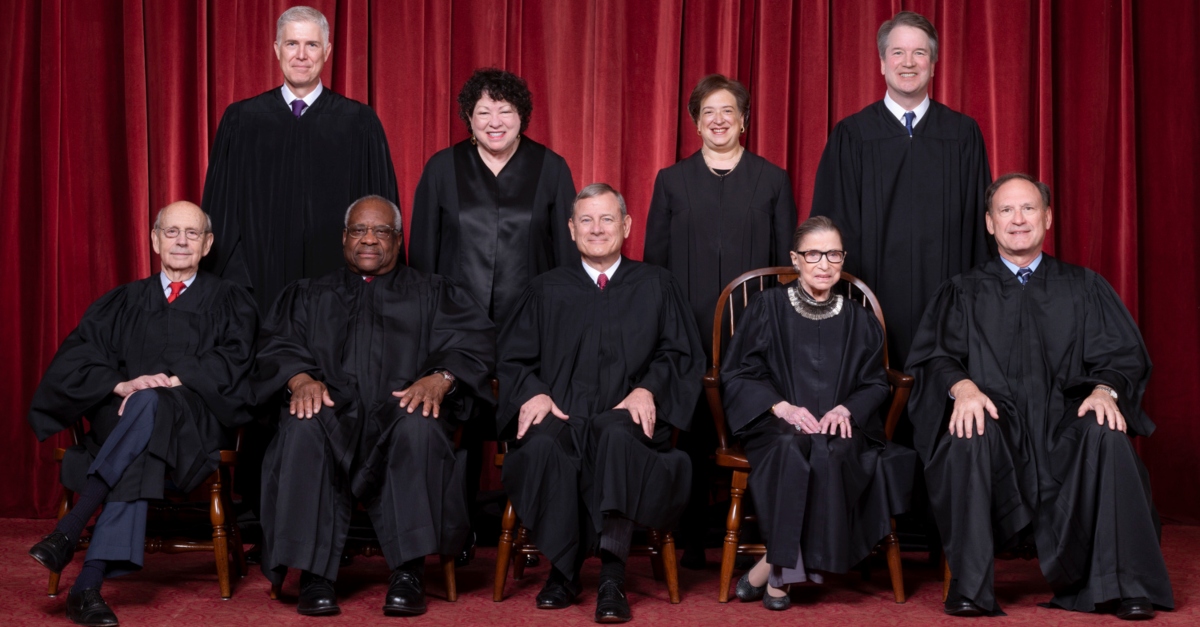
The Supreme Court of the United States held live streamed telephonic oral arguments on Wednesday in Little Sisters of the Poor v. Pennsylvania and Trump v. Pennsylvania. Each justice participated remotely, asking questions as prompted by a moderator–but that’s not the only way COVID-19 crept its way into the case. Justice Sonia Sotomayor raised a question during oral arguments that was peak 2020: how would a win for the Trump administration look when set against the background of coronavirus?
In the Little Sisters of the Poor case, the Trump administration is defending its rule that allows private employers to raise a moral or religious objections as grounds to opt out of the portion of the Affordable Care Act (ACA) that requires employers to provide health insurance with contraceptive coverage. The rule is being challenged by New Jersey and Pennsylvania, who argue that the administration’s improperly implemented rule will jeopardize women’s health.
Little Sisters of the Poor (a group of nuns that operates in about 30 countries, running nursing and retirement homes for the elderly) were allowed to intervene in the case. They argue that the ACA’s contraceptive mandate infringes on their religious freedom by forcing them to pay for birth control, in direct contravention of church rules.
Justice Sotomayor posed the rather chilling hypothetical to Paul D. Clement, the attorney arguing on behalf of the Little Sisters of the Poor:
Assume that the government tomorrow passes a law that says every insurance company must reimburse every policyholder they have for a COVID-19 vaccine. Can an employer object to paying for that policy?
Clement rushed to say that he believed the answer to Sotomayor’s hypothetical was no. However, the justice made her point and it was a bell that one cannot easily unring.
Justice Sotomayor’s hypothetical fixes on exactly what many fear: the Trump administration is so hell-bent on widening the definition of “religious freedom” that it’ll allow businesses to skip out on following federal law any time they disagree with the law. While we are mid-pandemic, the suggestion that private employer might effectively deny vaccine coverage on the basis of a moral or religious belief is a highly unwelcome thought.
Although the case deals only with the ACA’s contraceptive mandate, the slippery-slope possibilities are there–particularly in the context of vaccines. If we have seen anything during the coronavirus crisis, it’s that people have wildly different views on how to manage a health crisis. Even before COVID-19 was a thing, millions of Americans were embroiled in controversy over all things vaccine-related. Should a COVID-19 vaccine become available, it would hardly be difficult to imagine some employers wishing to opt out of a requirement to cover it. It’ll be up to the Court to decide the potency of conscience objections in response to a federal mandate — and one thing is for sure: coronavirus has entered the courtroom.
[image via Fred Schilling, Supreme Court Curator’s Office]
This is an opinion piece. The views expressed in this article are those of just the author.